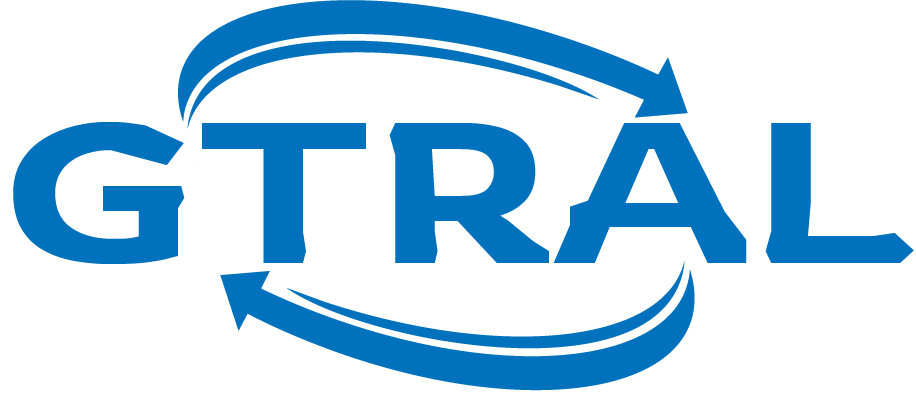This company has no active jobs
0 Review
Rate This Company ( No reviews yet )
About Us
National Training Council – Marshall Islands
RMI Education and Skills Strengthening Project
The Government of the Republic of Marshall Islands has actually gotten financing from the World Bank for the Education and Skills Strengthening Project (ESSP) expense. It plans to use part of the proceeds for speaking with services.
The consulting services (« the Services ») will help the Project Manager and the RMI National Training Council in executing the World Bank-funded project efficiently.
The project will concentrate on supporting the Project Implementation Unit (PIU) in producing a framework for Recognition of Prior Learning (RPL) for TVET, aimed at assisting the College of the Marshall Islands and the RMI National Training Council assess and boost the abilities of employees through recognized college certification.
The comprehensive Terms of Reference (TOR) for the project are shown in the attached Terms of Reference (ToR).
The National Training Council now welcomes eligible people (« Consultants ») to indicate their interest in providing the Services. Intrigued Consultants should offer info demonstrating that they have the needed certifications and pertinent experience to carry out the Services (connect a Cover Letter of no greater than 4 (4) pages attending to the obligatory experience and certification requirements curriculum vitae with a description of experience in similar projects, similar conditions, and so on). Firms’ personnel may express interest through the employing company for the assignment. In such a situation, just the experience and credentials of people shall be thought about in the choice procedure. The criteria for choosing the Consultant are: A.
Mandatory Qualifications and Experience Master’s degree in education, training
, management, or an associated field. Minimum of 5-10 years of experience working in TVET System. Curriculum Design and Systems.
Possess 2-5 years’ experience designing and
implementing RPL. frameworks, policies, and treatments. A sample of previous work will be required as evidence of previous experience. Outstanding communication, training, and assistance
abilities. Experience with working with varied stakeholders, consisting of government. agencies, TVET organizations, employers, and students in the Pacific. B. Desired Qualifications and Experience Capability to deal sensitively in a multicultural
environment and develop effective group relationships with customers and pertinent stakeholders. The attention of interested Consultants (including firms )is drawn to paragraphs 3.14, 3.16 and 3.17 of the World Bank’s »
Procurement Regulations for IPF Borrowers « July 2016 modified November 2020 » Procurement Regulations « , setting forth the World Bank’s policy on conflict of interest. More information can be obtained at the address below throughout office hours, 0900 to 1700 local time. Expressions of interest should be
delivered in a written kind to the address below (face to face or by e-mail )by 5:00 pm, 23rd December 2024.
The subject line must state: »National Training Council Strategic Plan Consultant -full name of the candidate ». Julius Lucky Director National Training Council!.?.!ntcdr@ntcinfo.org:Phone: 692 625-4521 Empowering Community Champions for Sustainable Development in RMI Gender Equality, Climate Resilience and Water Safety Training Majuro,
Republic of the Marshall Islands: The 4th
Women and Youth Training for
Gender Equality, Climate Change, Disaster Risk Reduction and Water Safety Management has just recently occurred at the University of the South Pacific’s school in Majuro, the Republic of the Marshall Islands(rmi national training council ). This essential training was arranged by the United Nations Development Programme( UNDP )Pacific Office through the Addressing Climate Vulnerability in the Water Sector(ACWA) job. The week-long capacity-building training aimed to empower ladies and youth with the understanding and practices required for climate-resilient water safety management in the
Republic of the Marshall Islands(RMI ). This training enhances a dedication to improving RMI’s water security and neighborhood strength versus environment change impacts, especially women
and youth, making sure that no one is left behind. The training invited individuals from all 24 atolls and included resource speakers from federal government agencies, non-governmental companies, and global advancement partners from the rmi national training council Environmental Protection Authority, Climate Change Directorate, Office of the Chief Secretary, Ministry of Culture and Internal Affairs, National Disaster Management Office, Women United Together Marshall Islands, RMI Human Trafficking Task Force, Waan Aelõñ in Majel, Jo-Jikum, and the International Organization for Migration. In her opening remarks, Secretary for the Ministry of Culture and Internal Affairs, Brenda Alik, underscored the significance of collective action in developing a climate-resilient nation. »It is our duty to come together and interact. As we deal with the obstacles positioned by environment modification, understanding its effect on our water resources is essential for improving the wellness of communities across the Marshall Islands, »she stated.
rmi national training council Environmental Protection Authority General Manager Moriana Philip highlighted in her speech the vital function of women and youth in attending to climate-related challenges. »This workshop unifies us from various communities to address the pressing issues we face today, including climate-related challenges, especially on our water resources. »We want to emphasize the vital role of ladies and youth in this job as your participation is instrumental to its success and beyond, « she said.
The very first day of the workshop covered crucial concerns related to gender equality, human rights, and public health within the Marshall Islands. It consisted of conversations on gender equality and mainstreaming, concentrating on the impacts of environment change on water security and the out of proportion effects on vulnerable groups. The value of incorporating gender equality and social inclusion into all task aspects was also discussed. Human rights and human trafficking were dealt with, stressing the requirement for comprehensive protection of susceptible populations
during emergency situations. Additionally, the workshop attended to gender-based violence, highlighting the numerous types that can occur in catastrophe circumstances, such as domestic violence and sexual coercion. The program concluded with a concentrate on sanitation and health and their vital role in health, incomes, school presence, self-respect, and building resilient communities. ACWA Project Manager Koji Kumamaru expressed his thankfulness to all individuals
, highlighting the significance of their contributions to their communities. »Women and youth are key to the success of the ACWA job. More significantly, you are the champions and future leaders who will go back to your communities to empower others, »he stated. Throughout the workshop, participants checked out Rongrong Island and took a look at the 15,000-gallon Flatpack Modular water tank set up at the Rongrong High School Boys Dormitory as part of the ACWA task. The setup is a crucial component of the task, matched by assistance from Australia
‘s Department of Foreign Affairs and Trade. The see served as an important direct experience of the favorable effect of the ACWA job on the neighborhood and its
water resources. Marie Naisher from Jabat Island expressed her appreciation for the chance to sign up with the workshop and made clear her desire to be part of the task when it reaches Jabat.
« This was my first time participating in such training, and I learned a lot from the guest speakers, group activities, and the site visit. I now understand the value of clean water and how to sanitize it. I’m ecstatic about the ACWA project pertaining to Jabat and all set to help when it shows up, »she stated. Don Kobney, an ACWA site organizer from Santo, Kwajalein, likewise shared his excitement. »The workshop and website check out boosted my self-confidence and understanding of the water tank installation.
Seeing the 15,000-gallon flatpack modular water tank firsthand gave me a clear understanding of the system, and I’m anticipating sharing this knowledge with my community, « he stated. By the workshop’s end, individuals were better equipped to comprehend climate modification and its local impacts, drive adjustment and mitigation efforts, especially in water safety, and make use of new resources to impact their neighborhoods positively. ACWA is made possible thanks to the assistance of the Green Climate
Fund, with the job co-financed by the Government of the Republic of the Marshall Islands

. The Marshall Islands: Skills Training and Vocational Education Project Assesses the efficiency of the project and highlights lessons. Supplies inputs to 2 more comprehensive evaluations- the local evaluation of ADB support for the Pacific and the unique evaluation study on Millennium Development Goals. The low instructional attainment and scarcity of Marshallese skilled workers were mostly due to the poor quality of basic education, lack of access to education in the outer islands, and weak points in skills training and the professional and technical education system.
These supported an economy marked by high joblessness because of constrained economic sector growth and government downsizing. Joblessness was particularly high among the youth and females in the external islands. Suitable regional competent personnel for existing job vacancies
were not available, hence the importation of properly experienced foreign workers. Hence, there was an inequality between offered jobs and skills of the Marshallese labour force. These conditions offered the effort for the Government
of the Marshall Islands to prioritize technical and professional education training reforms. In 2000, ADB approved a loan for $9.1 million to enhance skills training to supply well-trained employees needed for continual financial and social advancement. This was to be attained through an integrated national skills training system. The project consisted of four components: advancement of a career awareness program, abilities training improvement, enhanced abilities training chances for ladies and youth, and institutional fortifying. The anticipated result was increased income-generating opportunities and employment for trainees, especially females and youth in the external islands. In general, the job was ranked not successful. Limited development was achieved in making the task responsive to the requirements of its recipients and private-sector companies. The enduring weak point of bad numeracy and literacy proficiencies
among public primary and secondary school graduates and dropouts entering college or going to voc-tech education could be partially credited to the poor quality of basic education. The task was supply-driven and might not develop a strong linkage with economic sector requirements or align its activities with the requirements of the labour market. The status of the technical and employment education training system has actually stayed basically the exact same after job completion. The study put forward that ADB might encourage the Government of the Marshall Islands, through assessment and policy dialogue, to follow through on the federal government’s
dedication to developing a dedicated labour details system to link technical and vocational education training program offerings with market demand. Although the project set up a labour market info system, in the lack of in-house personnel ability at the National Training Council, it was not totally operational.


